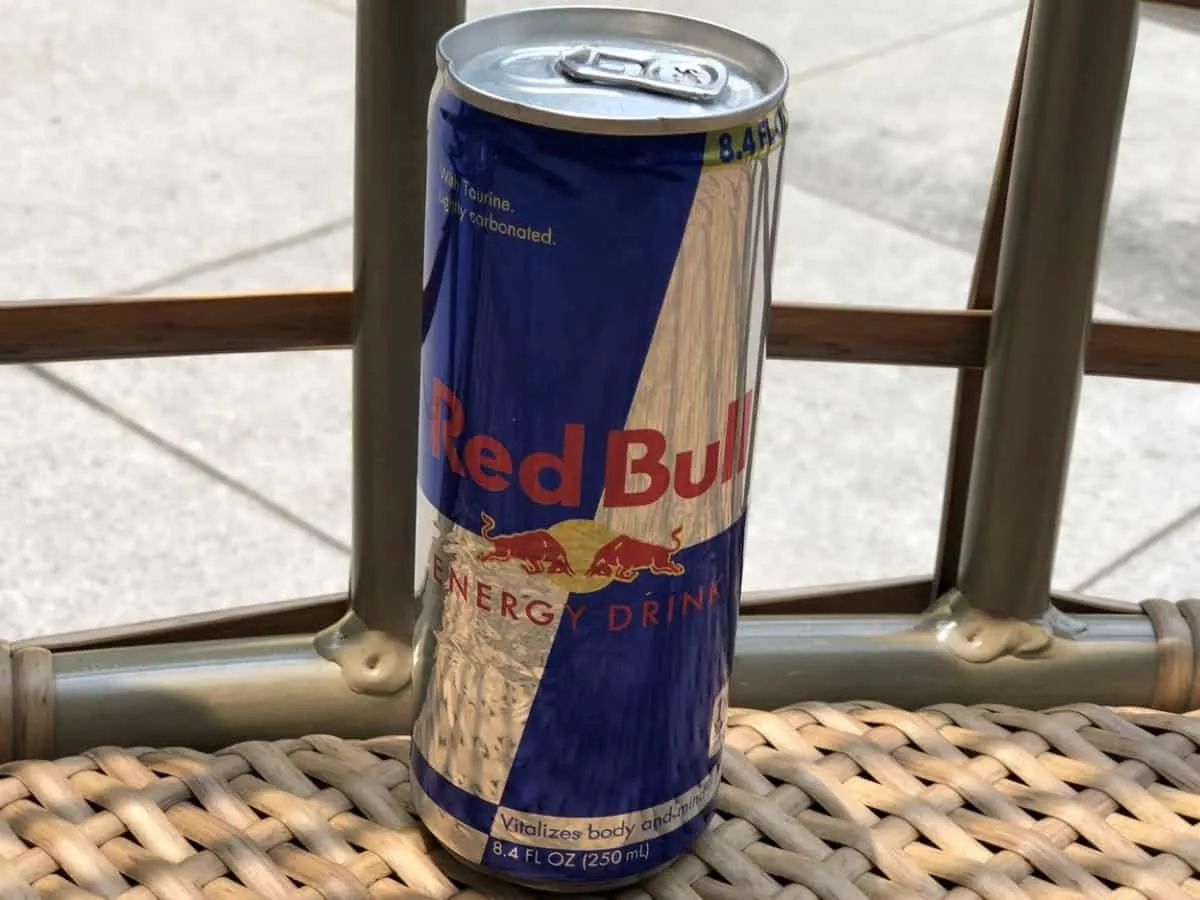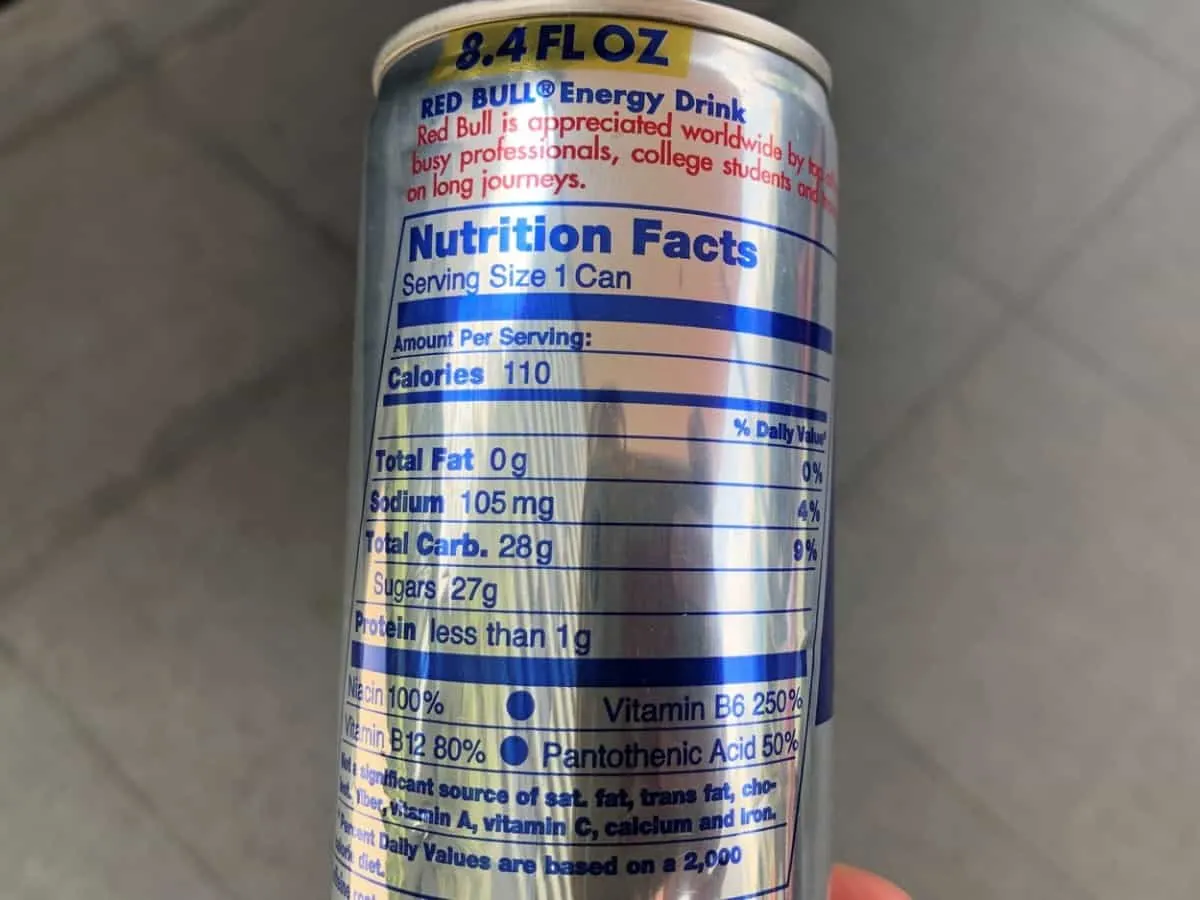Gluten-free diets are all the rage these days, even among those without any gluten or wheat allergies. Some say it’s healthier, others say its completely unnecessary and even downright dangerous.
While 99% of the population don’t have to forfeit their love of carbs, if you have a gluten allergy, you’re going to have to miss out on a lot of things, like eating pizza, pasta, cookies, and all these mouth-watering foods.
But does that mean you should avoid Red Bull as well?

You’re in luck because the answer is no. You don’t need to abstain from Red Bull if you’re ever considering becoming gluten-free since Red Bull, themselves, validated that their energy drink has no gluten.
However, what if I told you that being gluten-free doesn’t really equate to living healthier? If that made you curious, I guarantee you that this article will make you feel satisfied by answering all the questions you have in mind!
Contents
What is Gluten?
You might know that gluten comes from any food that contains dough and wheat-based ingredients. However, there are beverages that have gluten too!
Some examples are beers, ales, and lagers — most beverages that have gluten are alcoholic beverages.
How Much Gluten Is Safe?
According to Healthline, you should consume no more than 10 mg of gluten per day.
Also, “gluten-free” products are only validated by the Food and Drug Administration when the product contains less than 20 ppm of gluten.
Does Gluten-Free Really Mean Healthy?
With the craze of going gluten-free on the internet, you might have asked yourself what’s this gluten-free movement all about and considered joining it as well — but what if I told you that going gluten-free won’t actually make you healthy?
Being gluten-free does not make you healthy nor unhealthy, but not a lot of people know about this.
According to a survey by Consumer Reports, they found out that an astounding 63% of Americans thought that a gluten-free diet is beneficial to your health rather than a diet that has gluten.
So if ever you’re at the grocery and see the label “gluten-free” with organic or natural products, you now know that it doesn’t necessarily equate to a nutritious product — but of course, consuming organic foods have their fair share of benefits.
Nonetheless, even if gluten is not healthy nor unhealthy, there are still people who should avoid gluten. That leads us to our next question.
Is a Gluten-Free Diet Good for Everyone?
The only reason why some people go gluten-free is because of certain health problems like celiac disease, non-celiac gluten sensitivity, and wheat allergy.
You can watch this video to see how going gluten-free affects people that have health problems related to gluten sensitivity:
Celiac Disease
This type of disease is an autoimmune disorder that causes people to avoid consuming gluten since doing so will damage their small intestine.
Medline Plus stated that celiac disease is a common disorder that’s estimated to be found in 1 of 100 people worldwide. Celiac disease is genetic and has a 4% to 15% of developing towards people who have relatives that have been diagnosed with celiac disease.
Sadly, the pattern of inheritance is still unknown.
Non-Celiac Gluten Sensitivity
Although not diagnosed with celiac disease, people with non-celiac gluten sensitivity experience the same symptoms and side effects that occur to people with celiac disease.
One fascinating fact about non-celiac gluten sensitivity is that they don’t experience severe health problems when they consume a little bit of gluten.
Wheat Allergy
As it sounds like, people that are allergic to wheat experience a wheat allergy, it’s a reaction that occurs when food contains wheat or when they inhale wheat flour.
People allergic to wheat can still consume other gluten products (in other words, they only avoid wheat), unlike people with celiac disease who are not allowed to eat/drink any products that have gluten.
Symptoms
You can determine if you have the stated health problems when you encounter symptoms like:
- Bloating
- Diarrhea
- Stomach pain
- Brain Fog
- Headaches
- Dizziness
- Acne
Alternatives for Gluten
Fortunately, there’s a lot of grain, flour, and starch alternatives that have no innate gluten. Ergo, people with celiac disease, non-celiac gluten sensitivity, and wheat allergy can consume these alternatives:
- Amaranth
- Brown, white and wild rice
- Buckwheat
- Almond meal flour
- Coconut flour
- Corn
- Cornstarch
- Guar gum
- Millet
- Pea flour
- Potato flour
- Potatoes
- Quinoa
- Sorghum
- Soy flour
- Teff
What Makes an Energy Drink Gluten-Free?
To determine whether an energy drink is gluten-free or not, you should check the ingredients and the nutrition facts label. For an energy drink to be gluten-free, it must not have wheat, barley, rye, or malt.
To ensure whether an energy drink is gluten-free or not, you can visit their website to see if they validated that their products are indeed gluten-free.
If you don’t see any, that’s the time you start inspecting the energy drink on your own and determine whether the ingredients and nutrition facts label contain gluten.
Gluten-Free Energy Drinks
There are plenty of gluten-free energy drinks in the market these days primarily because there’s a lucrative market for them, even for people without gluten allergies.
Companies are being more aware of their customer’s dietary restrictions and have taken the proper steps to ensure everyone is taken care of.
Besides Red Bull, there are a lot of energy drinks that are gluten-free! Here are some examples of gluten-free energy drinks:
- Mountain Dew AMP Energy Drinks
- Mountain Dew Game Fuel
- Monster Energy Drinks
- NOS Energy Drink
- Rockstar Energy Drinks
- HiBall Energy Drink
- 5-Hour Energy
Red Bull Nutrition Facts
As stated earlier, reading the nutrition facts of an energy drink is one way of determining whether a product has gluten or not, so here’s a table which states the nutrition facts label of Red Bull:
| Typical Values | Red Bull (8.4 fl.oz) |
| Calories | 110 calories |
| Total Fat | 0g |
| Sodium | 105mg |
| Total Carb. | 28g |
| Sugars | 27g |
| Protein | Less than g |
| Niacin (Vitamin B3) | 100% |
| Pantothenic Acid (Vitamin B5) | 50% |
| Vitamin B6 | 250% |
| Vitamin B12 | 80% |
An image is also seen below to show the nutrition facts label at the back of Red Bull’s can:

Caffeine
Caffeine is the most important when it comes to energy drinks, they keep you awake and energized throughout the day.
Red Bull amounts to 80mg of caffeine which doesn’t exceed the limit for caffeine intake. According to the Food and Drug Administration (FDA), 400mg of caffeine is considered enough for a healthy adult.
However, they also stated that some people are more sensitive to the effects of caffeine and may metabolize it faster than others.
Exceeding the recommended amount of caffeine can make you feel certain side effects like feeling jittery, not sleepy (insomnia), rapid heart rate, and digestive issues.
Sugar
24g is the recommended amount of added sugar for women, while men can consume more since they’re advised to have no more than 36g of added sugar. This is one of the drawbacks of Red Bull since the energy drink contains 27g of added-sugar!
This means that a single can of Red Bull is more than enough for gals and guys should be more aware with other foods and beverages that may contain sugar to prevent exceeding the limit.
Vitamins
As seen on the table, Red Bull has B vitamins: Vitamin B3, B5, B6, and B12.
As a general rule of thumb, vitamins shouldn’t be more than 100%, although there’s no real harm if it does go over that.
All vitamins have their own unique functions and benefits, but the similarity of these B vitamins is that all of them are water-soluble. However, if your reason for drinking Red Bull is due to its vitamin content, then I don’t think that’s a good idea.
If you really want to get a lot of vitamins, consume more nutritious foods/beverages like fruits and vegetables.
Is Red Bull Gluten-Free?
As seen on the website, Red Bull clarified that their energy drinks is gluten-free. Here’s the exact quote:
Yes, Red Bull Energy Drink is gluten-free, wheat-free, lactose-free and dairy free!
Learn more about Red Bull ingredients here.
Red Bull
Is Red Bull Healthy?
Again, gluten-free doesn’t make you healthy nor unhealthy if you don’t have certain health problems and energy drinks like Red Bull are rarely healthy.
Red Bull has caffeine and a ton of sugar which can certainly make you unhealthy, especially when taken on a daily basis! If you want a healthy drink, then I suggest you opt for water — drinking it every day has a lot of benefits which your body will thank you for your decision!
According to Healthline, drinking one or more servings of Red Bull per day can potentially lead to an increased risk of type 2 diabetes.
Conclusion
So Red Bull is gluten-free but that doesn’t mean you should ignore all the other warning signs. It’s still packed with added sugar and artificial coloring.
That being said, there’s also no proper gluten certification on the can that indicates that it is in fact gluten-free, so you should probably be wary of that as well.
Brands can make a ton of promises to appeal to a certain demographic, but that doesn’t mean they’re always trustworthy. So be wise in your decisions, and drink in moderation.
There are probably a lot of other gluten-free energy drinks out there with an actual label stamped on the product for all the world to see. Why take the chance? Explore your options.
